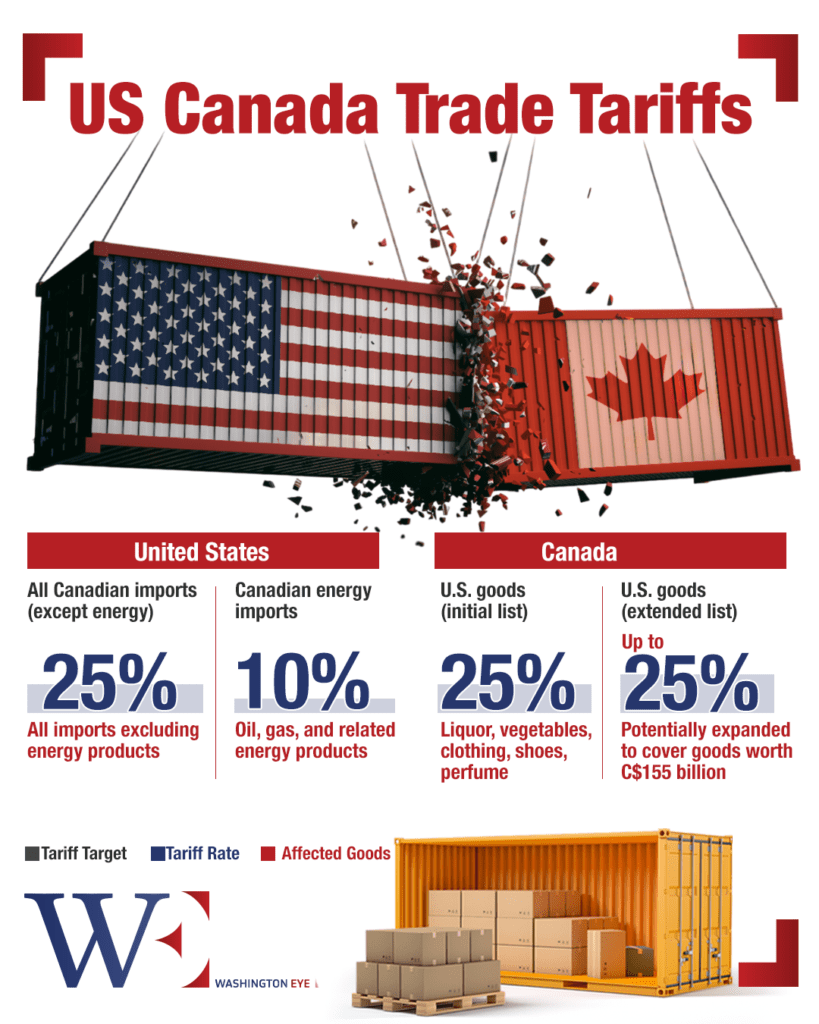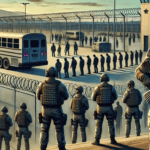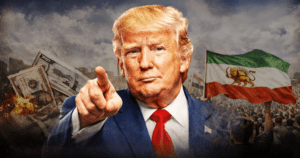The longstanding economic relationship between Canada and the United States has entered a turbulent new phase, with U.S. tariffs triggering a strong backlash from the Canadian government. President Donald Trump’s latest round of steep tariffs has prompted Prime Minister Justin Trudeau to hit back, calling the move “a very dumb thing to do” and announcing immediate retaliatory measures. With trade tensions intensifying, both economies are bracing for the economic fallout.
Trump’s Tariff Decision Sparks a Diplomatic Standoff
On March 4, 2025, President Trump imposed a 25% tariff on all Canadian aluminum and steel imports, citing national security concerns and Canada’s supposed failure to curb the influx of fentanyl into the U.S. economy. During a press conference, Trump warned of additional tariffs set to take effect on April 2, targeting various other Canadian exports, including lumber, dairy, and automotive parts.
“We’re bringing jobs back to America,” Trump said. “For far too long, Canada has benefited from an unfair trade advantage, and we are correcting that imbalance.”
This is not the first time Trump has imposed aggressive trade policies against Canada. During his first term in office, similar tariffs were enacted under Section 232 of the Trade Expansion Act, though they were later lifted following the signing of the U.S.-Mexico-Canada Agreement (USMCA). However, the re-imposition of tariffs signals a renewed era of trade hostilities, drawing concerns from industries reliant on cross-border commerce.
Canada Retaliates
Prime Minister Justin Trudeau was quick to denounce Trump’s decision, calling the tariffs “dumb” and “short-sighted” during an emergency press conference in Ottawa. He announced that Canada would respond with C$30 billion in counter-tariffs on U.S. imports, specifically targeting American-made steel, aluminum, and agricultural products.
“Canadians will not be bullied,” Trudeau stated. “These tariffs harm workers on both sides of the border and threaten the very industries that have made North America an economic powerhouse.”
Canada has historically been one of the United States’ largest trading partners, with over C$1 trillion in bilateral trade annually. Many analysts fear that the escalation of tariffs could disrupt supply chains and hurt key sectors such as manufacturing, retail, and agriculture.
Additionally, Trudeau hinted at possible future retaliatory measures that could include tariffs on American automobiles, which would be a significant blow to the U.S. economy given the deep integration of the North American automotive industry.
Economic Consequences and Industry Reactions
The trade dispute is already causing ripples across various industries. Economists warn that these tariffs could lead to higher consumer prices, job losses, and reduced investment on both sides of the border.
Impact on the Steel and Aluminum Industry
Canada is the largest supplier of aluminum and steel to the United States, and Trump’s tariffs are likely to disrupt the North American metals market. Industry leaders have expressed concerns that higher costs will be passed down to consumers, making everything from cars to canned goods more expensive.
“The consequences of these tariffs will be felt by American manufacturers and consumers alike,” said a spokesperson from the Canadian Steel Producers Association.
Agriculture and Food Prices to Rise
Canada’s retaliatory tariffs on American agricultural products are expected to hit U.S. farmers hard, particularly in key exporting states like Wisconsin, Iowa, and North Dakota. The Canadian government has specifically targeted U.S. dairy products, beef, and pork—industries that rely heavily on exports to Canada.
Stock Market Volatility
Following the announcement of the tariffs, North American stock markets saw significant fluctuations. The Toronto Stock Exchange (TSX) dropped by 2.3%, while the Dow Jones Industrial Average fell 1.7%, reflecting investor concerns over an escalating trade war.
Public and Political Reaction in Both Countries
The backlash against the tariffs has not been limited to Canada. U.S. businesses and lawmakers—especially from border states reliant on Canadian trade—have also voiced strong opposition. Republican Senator Susan Collins of Maine criticized the move, stating, “These tariffs are counterproductive. Canada is our ally, not our enemy. We need to work together, not impose barriers.” Similarly, Michigan Governor Gretchen Whitmer, whose state is deeply reliant on the North American automotive supply chain, warned that “Michigan’s auto industry depends on Canadian trade. These tariffs will cost American jobs.”
The response from Canadian officials has been equally forceful. Provincial leaders, including Ontario Premier Doug Ford and British Columbia Premier David Eby, have urged their constituents to boycott American products in protest. Some provinces have taken symbolic measures, such as removing U.S.-made alcohol from government-run liquor stores, signaling their opposition to what they see as an unfair trade policy.
What’s Next? A Potential Trade War?
With Trump threatening further tariff hikes and Trudeau vowing to fight back, the prospect of a full-scale trade war looms. Analysts warn that if both sides continue to escalate, the economic impact could be worse than during the 2018-2019 trade war, which cost both countries billions in lost trade and growth.
Despite the heated rhetoric, diplomatic negotiations remain possible. Canadian Foreign Affairs Minister Mélanie Joly has indicated that Ottawa is open to discussing a resolution but insists that the U.S. must first withdraw its tariffs. “The United States and Canada have always resolved trade disputes through dialogue,” she said. “We urge the U.S. to come to the table in good faith”.















